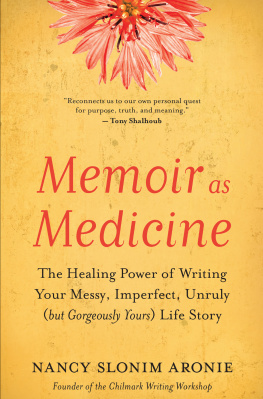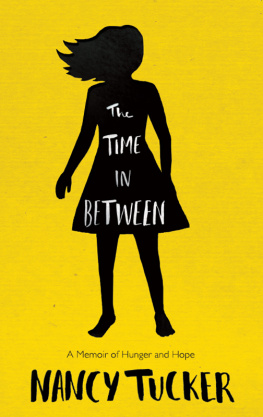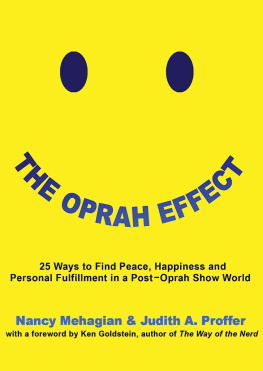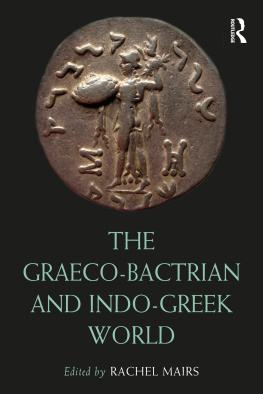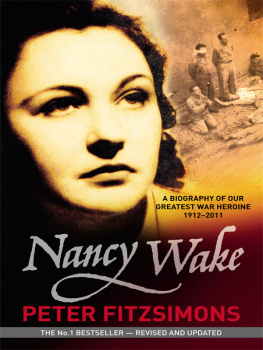Nancy Mairs - Waist-High in the World: A Life Among the Nondisabled
Here you can read online Nancy Mairs - Waist-High in the World: A Life Among the Nondisabled full text of the book (entire story) in english for free. Download pdf and epub, get meaning, cover and reviews about this ebook. year: 2001, publisher: Beacon Press, genre: Romance novel. Description of the work, (preface) as well as reviews are available. Best literature library LitArk.com created for fans of good reading and offers a wide selection of genres:
Romance novel
Science fiction
Adventure
Detective
Science
History
Home and family
Prose
Art
Politics
Computer
Non-fiction
Religion
Business
Children
Humor
Choose a favorite category and find really read worthwhile books. Enjoy immersion in the world of imagination, feel the emotions of the characters or learn something new for yourself, make an fascinating discovery.

- Book:Waist-High in the World: A Life Among the Nondisabled
- Author:
- Publisher:Beacon Press
- Genre:
- Year:2001
- Rating:3 / 5
- Favourites:Add to favourites
- Your mark:
- 60
- 1
- 2
- 3
- 4
- 5
Waist-High in the World: A Life Among the Nondisabled: summary, description and annotation
We offer to read an annotation, description, summary or preface (depends on what the author of the book "Waist-High in the World: A Life Among the Nondisabled" wrote himself). If you haven't found the necessary information about the book — write in the comments, we will try to find it.
Nancy Mairs: author's other books
Who wrote Waist-High in the World: A Life Among the Nondisabled? Find out the surname, the name of the author of the book and a list of all author's works by series.
Waist-High in the World: A Life Among the Nondisabled — read online for free the complete book (whole text) full work
Below is the text of the book, divided by pages. System saving the place of the last page read, allows you to conveniently read the book "Waist-High in the World: A Life Among the Nondisabled" online for free, without having to search again every time where you left off. Put a bookmark, and you can go to the page where you finished reading at any time.
Font size:
Interval:
Bookmark:
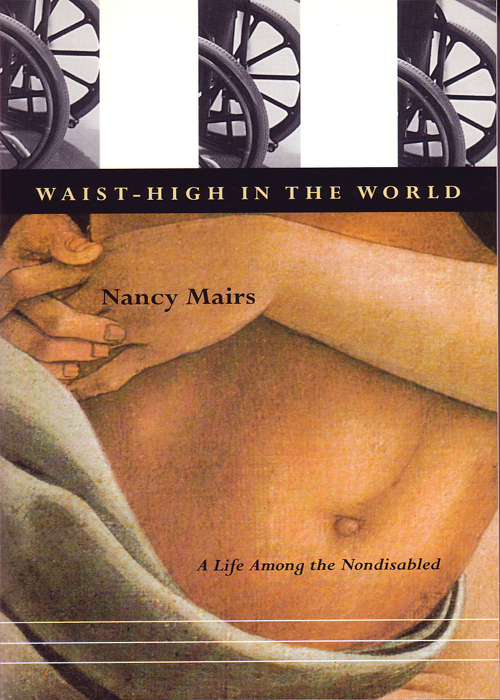
ALSO BY NANCY MAIRS
Voice Lessons:
On Becoming a (Woman) Writer
Ordinary Time:
Cycles in Marriage, Faith, and Renewal
Carnal Acts: Essays
Remembering the Bone House:
An Erotics of Place and Space
Plaintext: Deciphering a Womans Life
In All the Rooms of the Yellow House (poems)
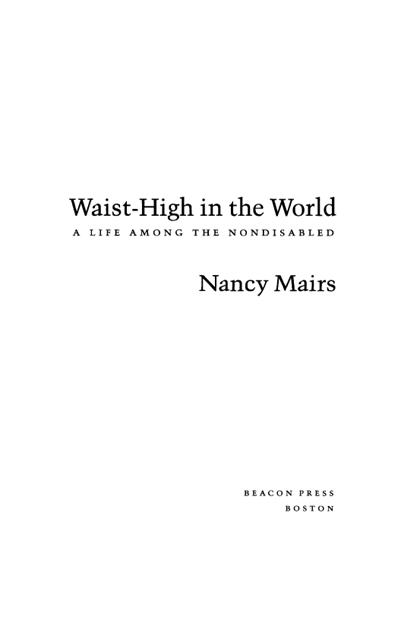
For
A NDREW H RYCYNA
enabler par excellence
There is only one question:
how to love this world.
Mary Oliver, Spring
I CANNOT begin to write this book. Ive made some stabs at it, pried out of my rubbly brain a few pages, always preliminary, from time to time. But mostly I write letters (never on time, so that the classic Nancy epistle always opens, My apologies...), or read material at least tangentially related to my subject, or merely play solitaire on my computer until I try my own patience to the point of despair.
The beginning of any project is always hard, I remind myselfthe bigger, the harderso that even a thousand-word review is initially daunting. But something more is dragging at my heels this time. Thats purely a metaphorical clich, of course. I havent walked in years now, and even the jaws of the Hound of Hell havent any force, unless I change the metaphor to dragging at my wheels, in which case he could slow my progress considerably. But the automatic manner in which I came up with a comparison having so little to do with my real situation helps to explain my excessive dawdling. In embarking upon this book about disability, I have committed myself to spend months contemplating issues and experiences that mark mine as an undesirable, perhaps even an unlivable, life. True, no matter what Im doing I can no longer forget that I have multiple sclerosis, but I can dull my awareness with books or beers or computer games. Writing has the opposite effect. It absorbs my attention utterly. And I dont want to think about my crippled life.
Then the telephone rings. This is her husband speaking, I hear George say. We have chosen not to have an unlisted number, and whenever hes around he deftly fends off carpet cleaners and bankcard representatives and the hearty alumnae/i of one alma mater or another; I do the same in his absence; ours is a partnership of equals. May I tell her whos calling? He listens for a moment and then says, Well, were about to eat dinner, but I think she can give you a few minutes. This is no junk call. Bringing the telephone into the family room where Im watching the NewsHour while he makes dinner, he tells me, This is Jennifer, from Virginia. Shes nineteen and she thinks she has symptoms.
The voice on the line has the high, tight, little-girl quality that the speech of many women takes on when theyre fighting tears. Shes a college student and shes just been reading one of my essays. She doesnt say which, but I assume that its On Being a Cripple from Plaintext, since thats the most widely anthologized. She hasnt even finished it yet, but she had to call as soon as she read about the blurred spot in my eye. At fourteen, she was treated for optic neuritis, which I recognize as a classic early symptom of MS, but shes never gotten an unequivocal diagnosis from a doctor. Or perhaps she hasa few are capable of forthrightness about this diseasebut hasnt yet taken it in. Her new husband plainly hasnt, anyway, and so she is feeling isolated as well as scared.
Im pretty sure its what I have, she winds up. What do you think?
Im no neurologist, but she doesnt need a diagnosis. Shes had plenty of diagnoses, too many and in conflict, as is so often the case with this baffling disease. Now she needs to talk herself into accepting the possibility that the doctors who have said MS are right, and as a stranger with no personal stake in her illness, Im a safe audience. I let her talk.
Im sorry, she says at last. Your husband said youre about to eat dinner. But I feel so much better just talking about MS. Maybe I could call again?
Of course. But maybe you should look for someone closer to home and save on the phone bill. We both laugh and say good-night.
George wasnt making up an excuse to keep Jennifer from talking too long. We really were about to have dinner. You seem preoccupied, he comments as we eat our cheese tortollini. Is it Jennifer?
Yes, I admit, meeting his smile. It goes on being Jennifer throughout the evening and into the dark, where I lie beside him with the black cat between us, the two of them sound asleep. I should have asked for her last name, I think, her address, her telephone number. Then I could... what? What am I supposed to do about Jennifer? Take away her MS, if that indeed is what she has? Failing that, calm her fears? Give her a college degree? Transform her husband, who will almost certainly leave her, and sooner rather than later, from a scared kid into a pillar of support and sympathy? I may wish I were God, but the truth is that I cant even tie my own shoes. Jennifer would be in real trouble if she had to rely on me to organize her life.
What Im supposed to do about Jennifer, of course, is to write a book: one in which she can recognize and accept and even celebrate her circumstances, but also one that reveals to those who care about her what needs and feelings those circumstances may engender in her. Not a text about MS in particular or disability in general, because plenty of those exist. Not a little instruction book either, since practical training is best conducted one-on-one by physical and occupational therapists, and psychological advice to so diverse an audience could comprise only the most general platitudes. More like a Baedeker for a country to which no one travels willingly: the observations and responses of a single wayfarer who hopes, in sketching her own experiences, to make the terrain seem less alien, less perilous, and far more amusing than the myths and legends about it would suggest.
Like Jennifer, I often need no more than someone to whom I can speak frankly about MS without being dismissed as a whiner (a distancing tactic often practiced by those in whom disability triggers unbearable anxiety), someone like my friend Joan. A nurse case manager who has worked with both the terminally and the chronically ill, Joan entered my life when I enrolled in a study to demonstrate the value to people with multiple sclerosis of regular support from nurses, social workers, and physical therapists. During our acquaintance, she has helped me in countless practical ways to prepare myself for Georges possible death from cancer and my own relentless physical losses. But I have benefited most, I think, from her ears.
Who wouldnt? In a society that prates about, but seldom practices, communication, the craving to be listened to, heard, understoodwhich originates with the first terrified wail, the circling arms, the breast, the consolatory murmuris hard to assuage. And because a cripple, in order to earn a shot at social intercourse with normals, must never publicly lament her state, must preferably never even mention it, an other who treats disability as a safe topic of conversation offers immeasurable relief, as Jennifers gratitude reveals.
Joan is a patient listener but hardly passive. She sits erect, eyes wide, hands loose in her lap, as though she didnt have several dozen others just like you whose stories she must soon rush off to hear. Every so often she interrupts with a brief question, which might be a request for information, or a signal that shes still with you no matter how tedious your tale, but almost never has so simple an effect. Usually, it startles me into new awareness, as when she asked, after Id taken on at more than usual length one morning about the ways in which MS was cramping and skewing my life: But Nancy, who would you be if you didnt have MS?
Font size:
Interval:
Bookmark:
Similar books «Waist-High in the World: A Life Among the Nondisabled»
Look at similar books to Waist-High in the World: A Life Among the Nondisabled. We have selected literature similar in name and meaning in the hope of providing readers with more options to find new, interesting, not yet read works.
Discussion, reviews of the book Waist-High in the World: A Life Among the Nondisabled and just readers' own opinions. Leave your comments, write what you think about the work, its meaning or the main characters. Specify what exactly you liked and what you didn't like, and why you think so.

